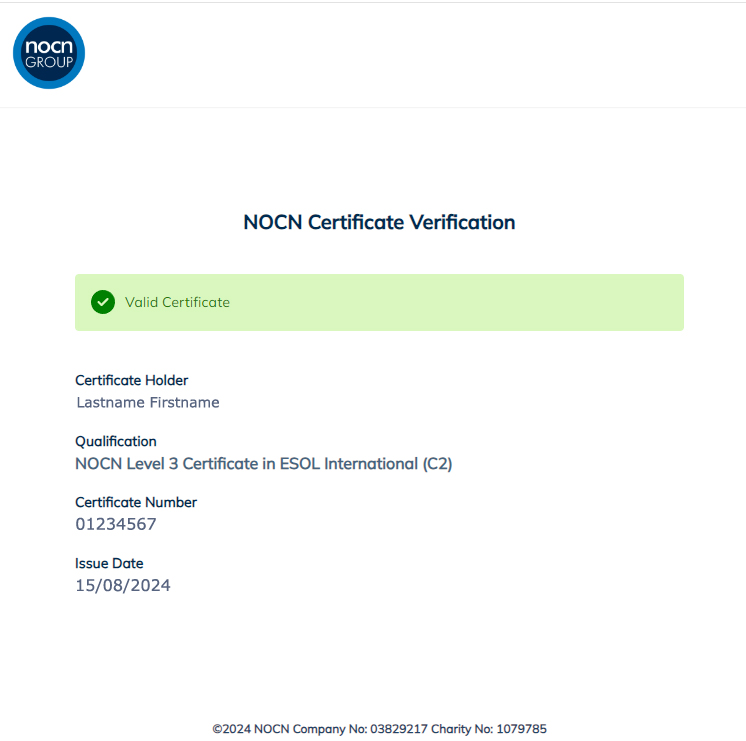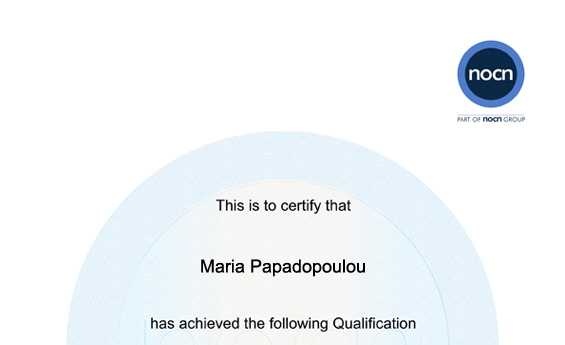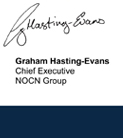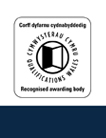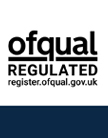The NOCN ESOL International certificate is a distinguished and globally recognized English language qualification. Notably, it is the sole ESOL international certificate issued through the unique and rigorous process described below, setting it apart as the epitome of excellence in English language proficiency assessment.
UK National Qualifications Framework (NQF) / Regulated Qualifications Framework (RQF)
In the UK, qualifications are often classified according to the NQF or RQF, which includes:
- Level 1: Foundation level (e.g., GCSE grades D-G, NVQ Level 1)
- Level 2: Intermediate level (e.g., GCSE grades A*-C, NVQ Level 2)
- Level 3: Advanced level (e.g., A-Levels, NVQ Level 3)
- Level 4: Higher level (e.g., Certificates of Higher Education)
- Level 5: Further higher level (e.g., Foundation Degrees, Diplomas of Higher Education)
- Level 6: Bachelor's degree level
- Level 7: Master's degree level
- Level 8: Doctoral degree level
Common European Framework of Reference for Languages (CEFR)
The CEFR is widely used for language proficiency certification and includes the following levels:
- A1 (Beginner)
- A2 (Elementary)
- B1 (Intermediate)
- B2 (Upper Intermediate)
- C1 (Advanced)
- C2 (Proficient)
Importance of Levels on Certificates and Degrees
- Standardization: Levels provide a standardized way to measure and compare achievements and proficiency across different regions and institutions.
- Recognition: They ensure that the qualifications are recognized and respected globally, facilitating academic and professional mobility.
- Clarity: Clear levels help individuals understand the scope of their qualifications and what is required to progress to the next stage.
- Placement: They aid in the appropriate placement of individuals in further education or employment, ensuring they are suitably challenged and supported.
- Motivation: Defined levels offer tangible goals for learners to strive toward, enhancing motivation and engagement in their educational journey.
Overall, levels on certificates and degrees are essential for establishing a clear, recognizable, and standardized indication of an individual's qualifications and skills.
Qualification Levels:
- NOCN Entry 3 Level Certificate in ESOL International – CERF Level: B1
- NOCN Level 1 Certificate in ESOL International – CERF Level: B2
- NOCN Level 2 Certificate in ESOL International – CERF Level: C1
- NOCN Level 3 Certificate in ESOL International – CERF Level: C2
MARKING
NOCN certificate stands out as the only certificate that provides detailed information on the candidate's performance across all language skills.
On the certificate received, each skill -reading, listening, speaking, and writing, is individually graded, along with an overall mark. This comprehensive breakdown is particularly valuable for academic institutions, as it offers a complete picture of the candidate’s language proficiency, ensuring that universities can accurately assess their readiness for academic studies.
This detailed reporting is equally beneficial for employers, who can gain clear insights into the candidate’s linguistic abilities in various contexts.
CEA accredited
NOCN is accredited by The Commission of English Language Program Accreditation (CEA). The CEA standards serve as the foundation for English language programs and language institutions that apply for accreditation. They are designed to ensure that students receive quality English language training no matter what kind of program or institution they attend. Given the variety of settings where English language teaching is offered and given the fact that the field of English language teaching is continually changing, the standards are written to allow programs and institutions to offer the best possible language instruction for their students.
Qualifications Whales Regulated
Qualifications Wales regulates qualifications, other than degrees, in Whales. It is an independent statutory body and works closely with other organisations involved in qualifications. Qualifications Wales works closely with awarding bodies to provide a regulatory framework, minimize failures, and protect learners’ interests. The rules set by the statutory body aim to ensure that qualifications accurately reflect learners’ knowledge and understanding.
OFQUAL Regulated
NOCN is OFQUAL-regulated. The Office of Qualifications and Examinations Regulations (Ofqual) regulates qualifications, examinations, and assessments in England, maintaining standards and confidence. Ofqual is responsible for making sure that:
- Regulated qualifications reliably indicate the knowledge, skills, and understanding students have demonstrated
- Assessments and exams show what a student has achieved
- People have confidence in the qualifications that are regulated
- Students and teachers have information on the full range of regulated qualifications.
Validation and Authenticity
- The certificate includes a QR code. By scanning the QR code, the authenticity and validation of the certificate can automatically be verified.
- Qualifications Approval number, Learner ID, Award Date, and Certificate Number are printed on the certificate.
- The Qualifications Approval Number demonstrates that the certificate is legitimate and valid.
- A seal of authenticity and a watermark, which are present on the certificate, prove its legitimacy and secure its authenticity.
